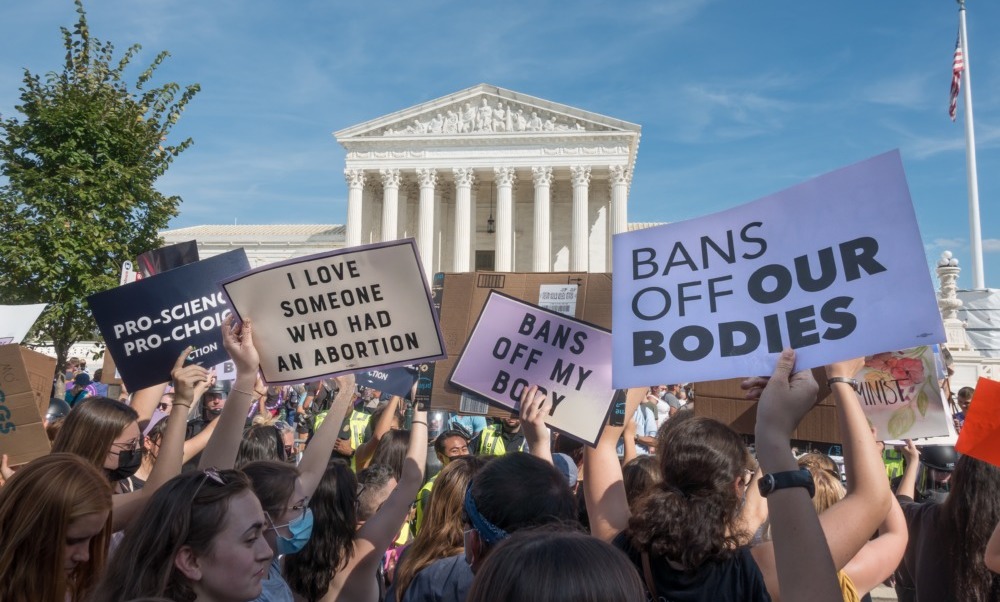Earlier this month, the national media picked up on the story of a Nebraska teen and her mother who were arrested for crimes related to the girl’s self-managed abortion. Much of the coverage has focused on the police’s access to personal Facebook messages between the two and the role those messages played in their decision to lay charges.
Like many people, I am concerned about the use of personal data to enforce laws banning abortion. But as a mom to three kids, and as an adolescent health and sexuality educator and the author of a book on dismantling sexual violence, that is not the only thing I find concerning. This case also highlights some other troubling issues. One is the fact that teens in this country simply cannot access the reproductive health care they need in a safe and timely manner.
But there is something else that matters too. This week, the girl appeared in court, where, despite being 17 at the time of the abortion, she was charged as an adult.
In a place like Nebraska, which requires anyone under 18 to obtain parental consent for an abortion, such a decision defies logic. That’s because the rationale for such mandates typically hinges on arguments related to the understanding of minors as children who are too young to make important choices about their reproductive health. In fact, this perspective was recently invoked by a Florida judge who deemed a parentless teen too immature to consent to her own abortion.

Courtesy of Ellen Friedrichs
Ellen Friedrichs is a writer and a health and sexuality educator.
And while parental involvement requirements for abortion are opposed by all the major American public health and medical associations (and by this writer) since they impose dangerous barriers for the procedure, the premise that they are purportedly based on, namely that there are developmental differences between children and adults, is something that has been clearly established by psychologists and neuroscientists.
Yet, as we are seeing in the Nebraska case, a minor who as a child was too young to legally consent to her own abortion was also considered an adult when being charged with crimes related to ending that pregnancy herself.
Thankfully, the practice of charging children as adults has been on the decline. The movement to “raise the age” for adult prosecution has made an impact around the country and the National Center for Juvenile Justice reports that the number of children charged as adults has dropped notably over the past decade.
However, desperate teen girls who illegally end pregnancies may not be the beneficiaries of such reforms.
A significant reason for this is that raising the age often does not apply when the charge is murder, and pregnancy loss is increasingly being prosecuted using language that echoes that crime. Consider that today at least 38 states have either fetal harm or fetal personhood statutes on the books. Additionally, traditional laws covering child abuse, improper disposal of human remains, and even feticide or murder itself are being used to prosecute abortion. And such prosecutions are increasing. According to the National Advocates for Pregnant Women, pregnancy criminalization has more than tripled across the country in recent years and it is only set to increase in our post-Roe landscape. Given this climate, it is likely that the Nebraska teen will not be the only minor charged as an adult for pregnancy loss, whether that loss results from a self-managed abortion or occurs under some other circumstance.
Teens are already a population with some of the fewest options both in regards to preventing pregnancy and also in terms of ending unwanted pregnancies that occur. But whatever the case, one thing that they are not is adults, and charging them as if they were is utterly inhumane.
***
Ellen Friedrichs received her master’s degree in health education with a focus on sex education from New York University. She runs a middle and high school health education program in Brooklyn, and teaches at the City of New York’s City Tech campus. Friedrichs is the author of Good Sexual Citizenship: How to Create a (Sexually) Safer World. Her writing can also be found in places like the Washington Post, Salon, Rewire News, and HuffPost.
































